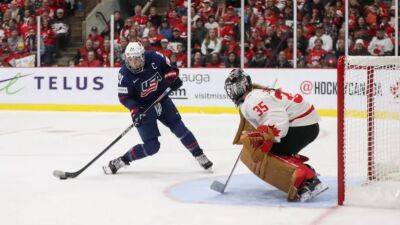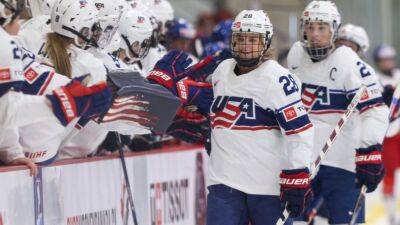Lessons from other leagues — and its own past — can help women's pro hockey enter new era
Nearly four years after the end of the Canadian Women's Hockey League (CWHL), the sport appears to have reached another critical moment in time.
The Professional Women's Hockey Players' Association (PWHPA), built from the ashes of the CWHL, has slowly risen, and according to multiple reports, it plans to launch a proper pro league next fall funded by Billie Jean King Enterprises and the owner of baseball's Los Angeles Dodgers.
In that time, nearly the entire PWHPA membership has held strong — a group that features every single non-collegiate player on the Team Canada roster for the upcoming world championships, which begin April 5 in Brampton, Ont.
The few that have departed — most notably the now-retired American star Brianna Decker — moved on to the Premier Hockey Federation (PHF), a league that used to be known as the National Women's Hockey League (NWHL) and was once a direct competitor of the CWHL.
The PHF is itself growing rapidly. Its salary cap will double to $1.5 million US per team next season, and teams like the reigning champion Toronto Six will require its players to work full-time.
It makes sense that women's hockey should have a fully established North American pro league — just as soccer has the NWSL and basketball has the WNBA. But the sport should heed lessons from its own past as well as the continent's other women's pro sports leagues as it enters a new era.
For one, the factions may need to unite, said Laurel Walzak, who was chair of the CWHL's board when the league folded.
"They're going to be competing for audiences, competing for sponsorship dollars, competing for broadcast time. And so hopefully they're all in different markets or they're doing something collaboratively to grow the game, right?"






